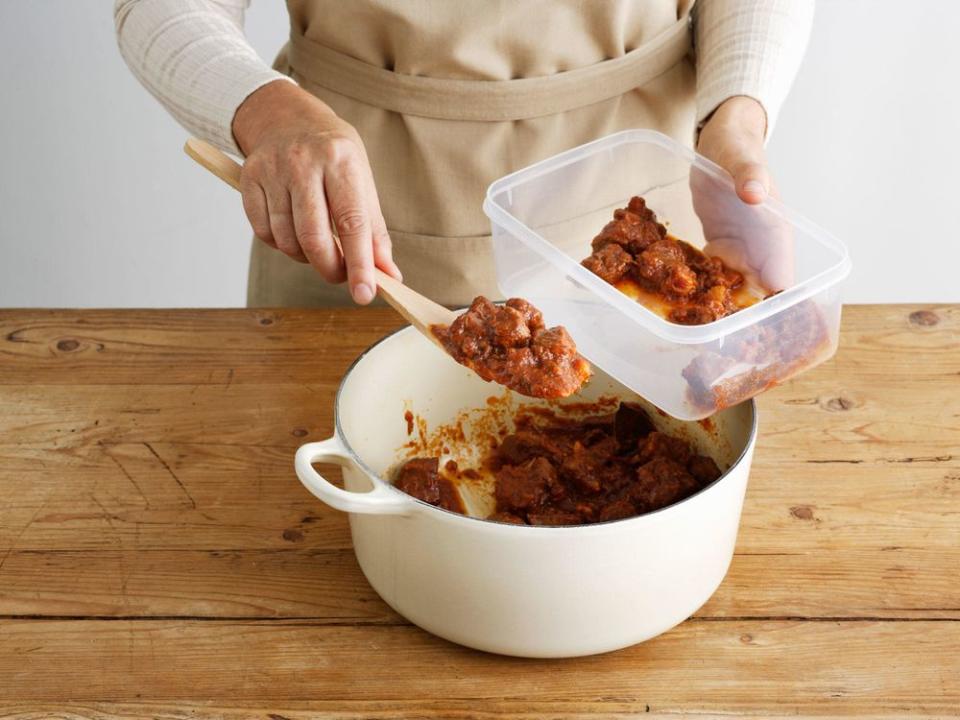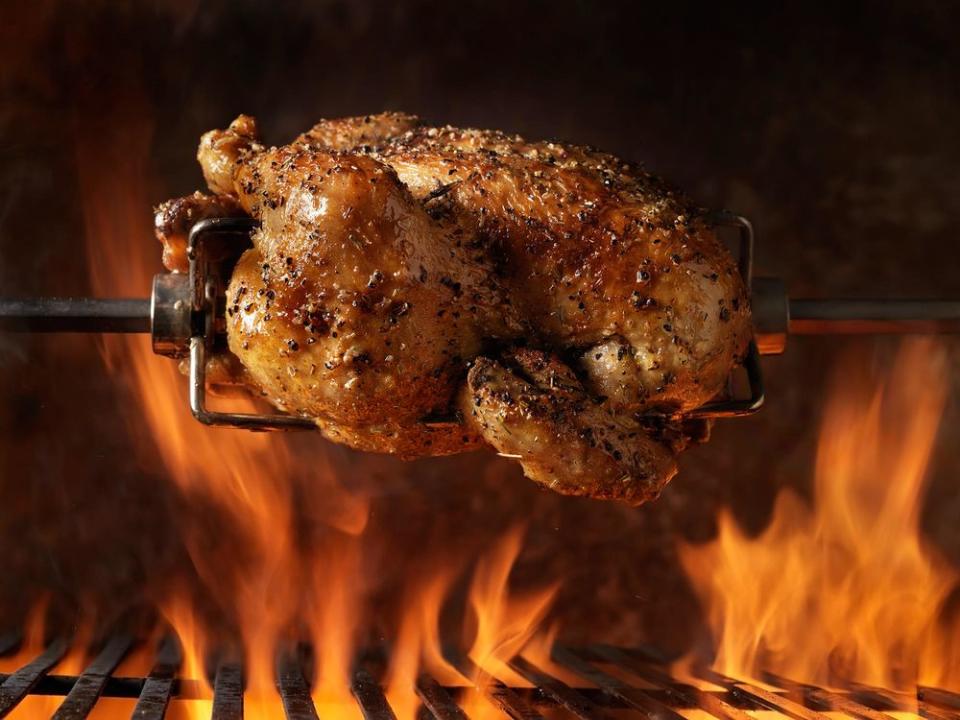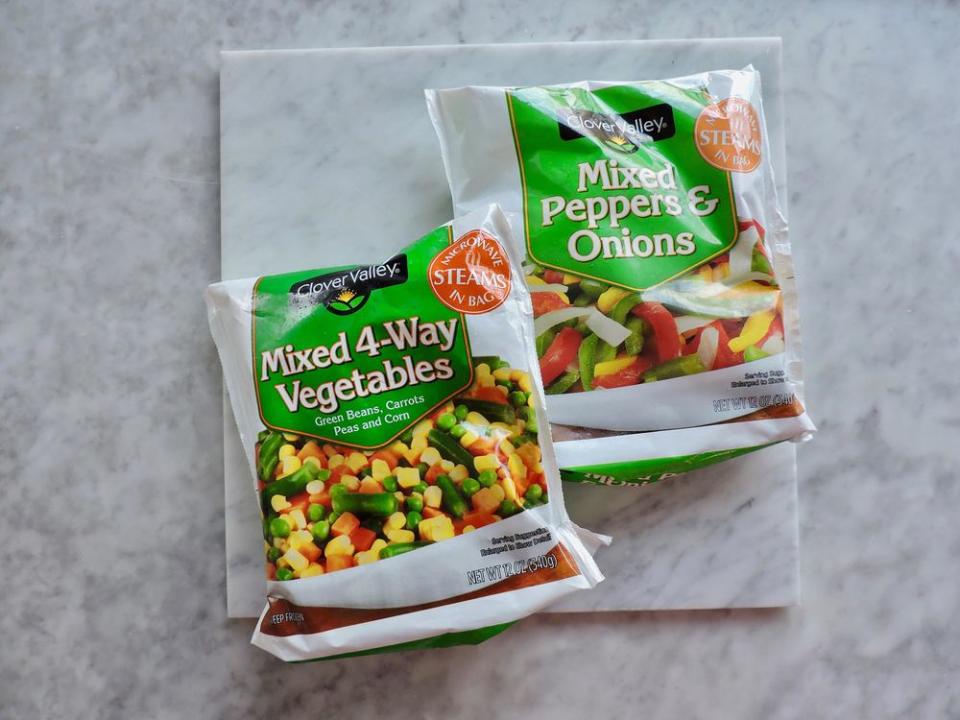7 No-Fail Tricks for Successful Meal Prep from People Who Do It Every Week

Let's get down to brass tacks here: Everyone knows that cooking meals at home is the best way to eat mindfully and take care of your body. Everyone. Even the CDC encourages it. Fast food is delicious, sure, but calorically, it's inadvisable and unsustainable (depending on how long you're looking to sustain life on this plane, at any rate). But prepping and cooking meals at home can also be very, very hard. Life has a tendency of getting in the way, whether it's because of your job, family, friends, or hobbies. There's always going to be something that comes up and makes it difficult to plan and execute all your meals for a given week.
But, that's not to say consistent meal preparation is impossible. If you can make it habitual, and do so in a way that's conducive to your schedule and lifestyle, it can stick. And we know lots of people who are living proof of that. They're all members of the Cooking Light Diet, a meal-planning service we launched with the intent to bring people back into their kitchens to prepare healthy, delicious, home-cooked meals for breakfast, lunch, and dinner (snacks, too). The service has been live for almost six years now, and with members who've been subscribed since the start, these folks know how to meal prep their weeks and stick to a plan.
So we picked their brains, and these 7 tricks are sure to point you toward consistent meal-planning success.
Designate a Pre-Prep Day
Scenario: You get home late from work and really don't have the energy to decide what to prepare, and then chop and cook all the required ingredients. If only you had more time in the day.
Quite possibly the most important step towards consistent meal planning is setting aside some time during the week that you can utilize to get ahead. Whether it's organizing your ingredients together in the fridge by recipe, chopping all the veggies you'll need for the week, or just taking time to read through all your recipe instructions so you know what to expect when you start cooking, taking a beat to actually plan out your meal prep process is crucial. This means your expectations are set and you're less likely to feel overwhelmed when it's mealtime. And we all know that meal prep is a lot more involved than simply just picking out what recipes you'll cook. Most people opt to do their pre-prep on a Sunday before the conventional workweek starts, but you can set aside 45 minutes to a couple hours whenever it works for your schedule. This step is more often than not the difference between successful and consistent meal prepping and defeated trips to your local drive-thru.
Choose Carefully
Scenario: You really wanted to cook tonight, but the recipe you selected involves making a roux, and you've never done that before. That sounds complicated, so maybe just go ahead and order pizza instead.
Make sure you're picking the right recipes when planning out your week. No, this doesn't mean just abstaining from ingredients you can't or won't eat. It means looking beyond the recipe name and determining, realistically, how long it will take you to prepare. Is there a lot of chopping involved? If so, how are your knife skills? How many steps are involved? Is this a recipe you can still put together easily if you have to stay late at work, pick the kids up from practice, etc.? Being deliberate with what recipes you select can go a long way in determining how successful your sustained meal prepping is.
Cooking Light Diet members will deliberately plug fast and easy recipes into their meal plans during weeks they know they've got a lot going on. Point being: You know yourself, and you know what you'll feel like cooking at the end of the day—and what you won't. Don't go overboard picking super complex recipes that you'll then back out of cooking in favor of something easier. Build some easy menu options into your week and, if you have to, pivot accordingly. There's no shame in deciding you're not going to tackle that homemade gnocchi tonight because work ran late. Just make sure you give yourself some slack via options that will make your first several weeks of meal prepping sustainable, even if that means repeating the same recipes over and over for a while. Then, once you've gotten used to the cooking and made it a habit, start tackling trickier recipes.
Double Down
Scenario: You committed to preparing all your meals for the week, but it's day three and you're already feeling overwhelmed. There's no way you feel like cooking tonight.
Another way folks give up on meal prepping before making it a habit is by becoming overwhelmed with the sheer amount of meals they're putting together. If you've committed to cooking your own breakfasts, lunches, and dinners, read these next words a couple times before moving onto the next sentence: There is no shame in the leftovers game. Unless you're a billionaire and you're bored, almost no one is going to have the time or resources to put together 21 meals in a week. Mentally, that's a Game of Thrones-size wall to surmount.
When you're just starting out, make sure to pick recipes that freeze easily. And if you want to go one step further, choose freezer-friendly recipes that you can double batch. This is a smart way to ensure you stay on track, as you're stockpiling meals you've already eaten and know you don't mind having more than once. And you've now built in an easy out on days/nights when time is short. Remember, the key to consistent meal prep is making it a habit, so until you're at that point (rolling with the punches and still wanting to come home and cook something new), having extra servings in the freezer you can take out, heat up, and be done with is vital to staying on track.

Lean On Appliances
Scenario: You have to work late and then pick the kids up from practice. There's just no way you'll have time to get a meal on the table before bedtime.
If you have a crazy-hectic schedule, the last thing you want to do when getting home is head into the kitchen to start cooking. But why do all the work when you can let machines do it a la Rosie Jetson? Instant Pots and slow cookers were invented for a reason, after all.
When planning your menu for a week, pinpoint which days will be the most difficult time-wise to put a meal together. On those days, opt for recipes where either the slow cooker has dinner ready for you when you get home, or go with a meal that will come together so fast in your Instant Pot that you won't be inclined to just order out. There are thousands of recipes available online for both slow cookers and Instant Pots, so you'll never be wanting for variety when taking this approach.

Looking for even more great meal-planning hacks? Subscribe to the Cooking Light Diet today and join our Facebook Community to find out how members have turned their meal plans into lifestyles.
Cut Corners with Convenience
Scenario: You were going to make a BBQ Chicken Pizza for dinner, but work was really, really rough. You've already decided before even getting home you're not going to make the from-scratch sauce and cook and shred chicken. Not after the day you've had, no way.
Look, the supermarket sells rotisserie chickens for a reason. They also sell ready-made mashed potatoes (so you can make recipes like this), salad packs, microwave rice, jarred sauces, and many more convenience items for that same reason: to save you time. Well that and capitalism, but let's focus on the time factor. When planning your shopping list, make sure to include convenience items. Sure, these foods are generally more processed, but cross that bridge when you come to it. If using rotisserie chicken is going to save you from having to thaw, cook, and shred chicken, go that route. Worn out from the day's activities and already dreading making that homemade sauce for your barbecue pizza? Break out a jar of barbecue sauce and save yourself several steps. Running late? Utilize that bagged salad instead of chopping up the two heads of lettuce you bought.
Basically, there's a reason why they're not referred to as inconvenience items. Don't be afraid to go through your meal plan, identify where time could be saved utilizing already prepared ingredients, and subbing some in until you're comfortable without them. This will not only save you time but will also help you build confidence toward making your meal planning habitual.

Stockpile a Side Surplus
Scenario: You know exactly what your entree is, but you're drawing blanks on what side to serve with it. Exhausted, you decide instead to pick up dinner that comes with a ready-made side of fried potato sticks and ketchup.
Don't let sides be your undoing. That's a trap you can easily avoid by stockpiling the fridge with your favorite frozen veggies, or the aforementioned convenience items like bagged salads. Saying "I don't really have time to prepare a main and sides" is a cop-out that these items can easily prevent.
Another alternative is to just forgo sides altogether. Plan recipes that are one-dish courses unto themselves, or double up on your entree serving if you know one serving isn't going to do the trick.
Whichever of these ways you want to play it, don't let sides dictate how consistently you meal prep and plan.

Improvise, Adapt, Overcome
Scenario: Work sucked; the commute sucked; everything is awful. There's just no way you're going to get in the kitchen tonight to cook anything, period.
Don't get derailed when you're burned out and you don't want to cook anything. You can still do this! If need be, keep a healthier frozen pizza in the fridge for such an occasion. Even if it's not part of your actual meal plan, grab your favorite lunch meat from the deli so you can eat something. And you know what? If you really have to, go get that drive-thru food. Don't punish yourself for slipping up. Just don't do it consistently. While eating that fast food burger, try to think about what's on the menu for tomorrow and what you can do to get back on track between now and then.
Life happens, and everyone has these moments. You're only human. The key is to improvise by doing what you need to do in that moment, adapting your mood and focusing on what's in your control, and overcoming the urge to stop meal prepping altogether.
It's going to take some time (and plenty of patience) to meal prep consistently, but implement the tricks above into your routine and you're already well on the way to making it happen.
If you like these hacks, join the service that inspired them! Subscribe to the Cooking Light Diet and start receiving your customizable meal plans today.

